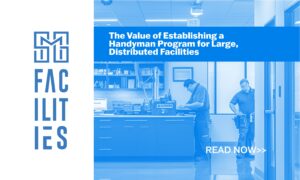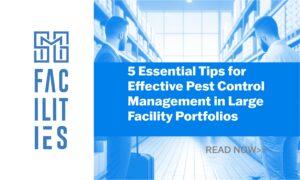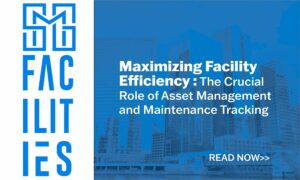Building maintenance is a part of building management that owners cannot ignore without severe consequences. It raises the property’s total value, boosts visitor and resident experience and satisfaction, and removes safety and dangerous hazards. Although routine and planned maintenance is preferable, not all problems happen at an ideal time. This is why having around-the-clock service is vital to keeping things running smoothly in facilities management.
Around-the-clock maintenance facilities management improves the lifespan of the building and its components, aiding in the prevention of future issues. Improper equipment maintenance, such as commercial HVAC maintenance, also leads to excessive power usage, resulting in outages and overheating circuits. According to ENERGY.GOV, “70-90% of AC/HP systems in homes have at least one performance-compromising fault incurred at installation or due to inadequate maintenance. These rates rise to 90-100%.”
Lack of routine maintenance causes systems to fail faster, especially when there are other unpredicted occurrences such as an act of nature. Currently, Texas is experiencing a heat wave testing the Texas power grid and household HVAC units. The high temperatures are causing an unprecedented strain on units, especially those lacking routine maintenance.
Why Facilities Management Is a Non-Stop Need
Facilities management is a vital industry. Without a good management team, the safety and satisfaction of tenants and patrons are at risk. Integrated facilities management is a full-time, non-stop job. Businesses have working hours when they are open to customers and clients. However, the building works continuously, never closing. Issues can arise at any time of the day, week, month, or year.
Even routine procedures occur after hours, such as night workers prepping the building for the next day of business. The world never stops, and neither does facilities management.
What Can Go Wrong Often Does So at the Most Inconvenient Time
Planning scheduled maintenance, such as a pre-summer HVAC checklist, is proactive and preventative maintenance. To avoid major problems in the future, the building is frequently examined and maintained by the facilities management team. Many repairs and issues are avoidable with the implementation of scheduled maintenance. These issues include but are not limited to age-related roof leaks, mildew, safety risks, bird infestations, clogged pipes or drain lines, and inefficient HVAC systems that may be avoided with routine maintenance.
Proactive planning helps to protect the health and safety of building occupants, staff, and visitors. Even if there is not a current issue at hand, maintaining machinery and all other building components is essential for avoiding issues and extending the life of the structure and its parts.
A Lacking Network or Plan Results in Higher Costs
Lowering the repairs and maintenance costs are significant reasons to start planning, preventing, and establishing a preventive maintenance program. Unfortunately, that is only possible if the maintenance network is alive and well. A successful network is a vital component of quality service. According to ACHR News, “Most of the ingredients that make a successful tune-up and outdoor unit service visit break down to doing the usual things well and efficiently and finding little things to do that distinguish the company’s service. Given the integrated nature of this maintenance visit, some advice extends beyond the outdoor unit.”
On-demand services necessities immediate action, incurring higher costs and fees. This can entail making after-hours and overnight repair calls, hastening the shipment and delivery of components, and postponing other tasks and customers to meet maintenance needs.
Quality Service Providers Have a Network With On-Demand Assist
Support services with a partner with extensive training ensure demands are completed professionally and competently. Facilities managers can handle the stressful nature of the job while providing a professional experience. Quality service providers can cross-identify issues, react promptly, and solve the problem as quickly as possible.
A professional partner has a network of contacts that can help with on-demand and urgent maintenance issues. An established network means that if one or more field service vendors are busy, they can find someone available in their network. This creates less stress for the business owner, allowing them to focus on other priorities.
That Added Value Means Getting Back to Usual Operations
The added value of a service partner ensures the business can get back to normal operations as quickly as possible without interruption of the day-to-day tasks. For example, a restaurant that has an HVAC problem can lead to high temperatures. The increased interior temperatures lead to unsatisfied and uncomfortable customers and potentially spoiled food. This can damage the business’s brand, affecting the restaurant’s profitability. These are all things to consider when implementing a maintenance plan.
Stay Ready Through Seasonal Change and Disruptive Events to Your Facility Maintenance by Establishing Those Partnerships Now
Lacking a maintenance plan is detrimental to facilities management. Ensure to choose a provider with an array of contractors in their network, skills and training for emergency and routine maintenance, and customer service that exceeds all others. Extending the life of all building components will not only leave a greater satisfaction with customers and occupants but also improve the overall ROI.Get more from your budget by outsourcing your facility’s maintenance concerns. Stay ready through seasonal changes, disruptive events, and other acts of nature. Establish partnerships for your facilities management and contact SMG Facilities today.







